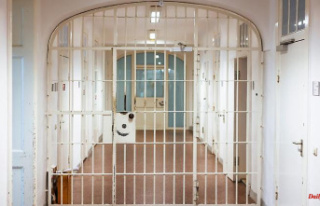Rostock (dpa/mv) - In view of rising energy costs and possible shortages, the tourism industry in Mecklenburg-Western Pomerania is increasingly looking at savings. The exploding prices would bring one or the other to the brink of existence, said Tobias Woitendorf, managing director of the state tourism association, on Wednesday at a virtual conference.
According to the energy expert Arne Rakel from the State Energy and Climate Protection Agency, the need for advice has grown exponentially with the rise in prices. While increases in efficiency in the past were about competitive advantages, the question now is "how will we get through the winter". On a larger scale, politics or suppliers are in demand, for example when replacing natural gas. Companies, on the other hand, could optimize their consumption and at the same time cover their needs in a climate-friendly manner using renewable energies. "The best and cleanest energy is the one I don't use".
The principle "measure, save, replace" is decisive. Without concrete data, you can't analyze anything, solve problems and prove savings. It is about identifying excessive consumption for unnecessarily strong heating or cooling. In some cases, relatively simple solutions increased efficiency. In addition to regulation and behavioral adjustments, heat pumps could make use of waste heat in swimming pools, for example, or the waste heat from cooling systems could be used in the kitchen. In the case of solar energy, direct use for self-sufficiency instead of feeding it into the grid makes sense.
Dirk Klein from Hotel Haffhus in Ueckermünde illustrated how far a company can go in terms of energy efficiency. One has been energy self-sufficient since 2018 and as an energy island has neither a connection to the public electricity grid nor a gas connection. According to him, this is made possible by a photovoltaic system, battery, heat and cold storage and combined heat and power plants, for which waste from forestry serves as raw material.
You also earn money because you also use electricity for charging stations for electric cars and, thanks to the greenhouse gas reduction quota, save CO2. The bottom line is zero energy costs. True self-sufficiency is of course not achievable for every company, Klein said.












